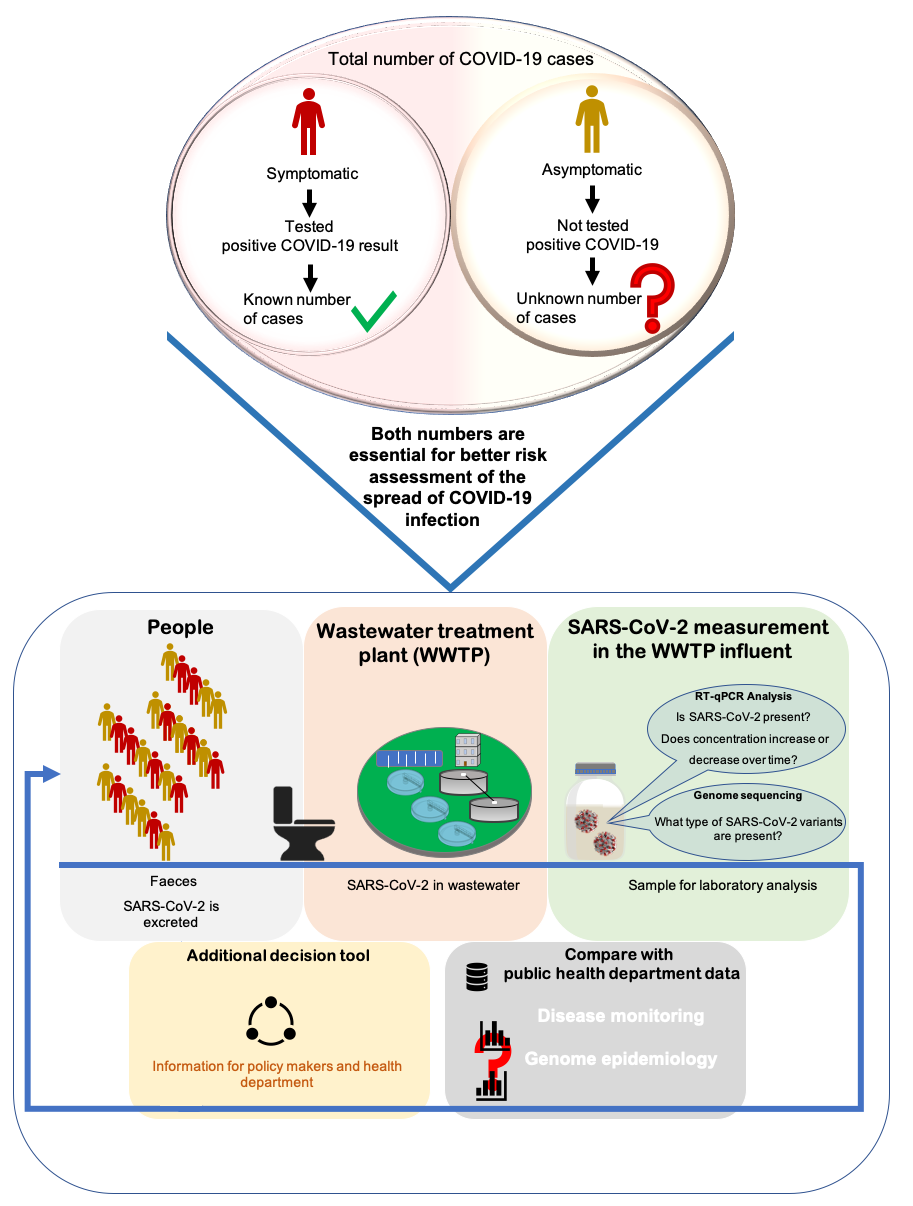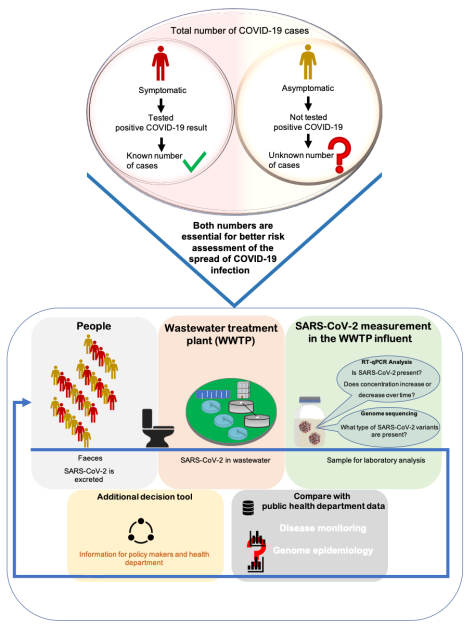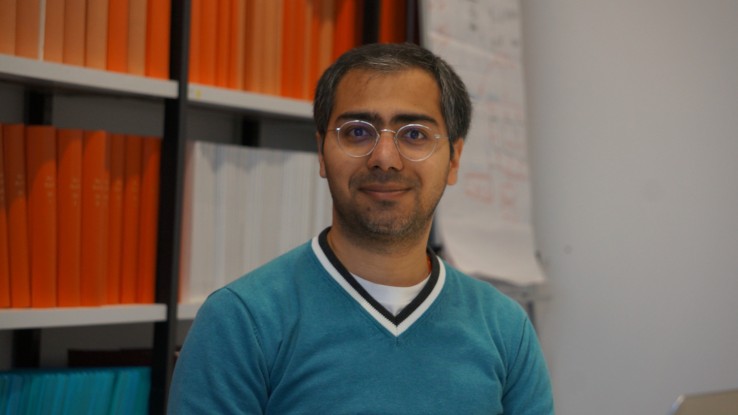Water and Environmental Biotechnology

SARS-CoV-2 in wastewater
The global distribution of the new Corona Virus Sars-CoV-2 presents our society with enormous challenges. In order to curb this pandemic, many countries, including Germany, have decided and implemented severe restrictions on public life in recent weeks. These measures have led to a decline in the number of infections and the number of cases in Germany. However, the easing measures that have recently come into effect harbor the risk of a new wave of infections. For this reason, science and politics are working on suitable strategies for the early detection of new sources of infection and key figures in order to critically monitor the developments.
The municipal wastewater disposal infrastructure represents a still very little researched possibility to follow the infection process. A few research groups in the Netherlands, Italy, China, Switzerland, France, and the USA have already started with success, Sars-CoV-2 in municipal Evidence of wastewater. The wastewater serves as an indicator of the infection process. Such approaches have also been used successfully in the past for monitoring polioviruses.
To date, there are no published data on the occurrence or the concentrations of SARS-CoV-2 in wastewater in Germany. If it is possible to reliably quantify the SARS-CoV-2 virus in raw wastewater, it would be possible to follow the infection process in the respective catchment area of the respective sewage treatment plant and to provide important additional information on the occurrence and the dynamics of the spread, in order to prevent this Healthcare sector to provide additional information about the current infection. This approach can provide information that can only be provided by the healthcare system alone, since it only records people who report, get sick, and or test with symptoms. The early detection of a potential source of infection via the wastewater could be used as complementary information for targeted tests and quarantine measures.
Concept of the project “Abwa-SARS”






